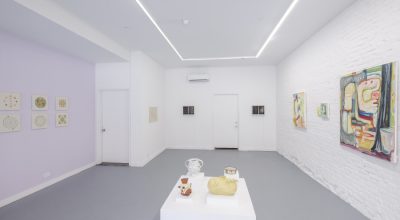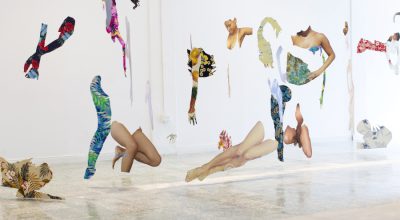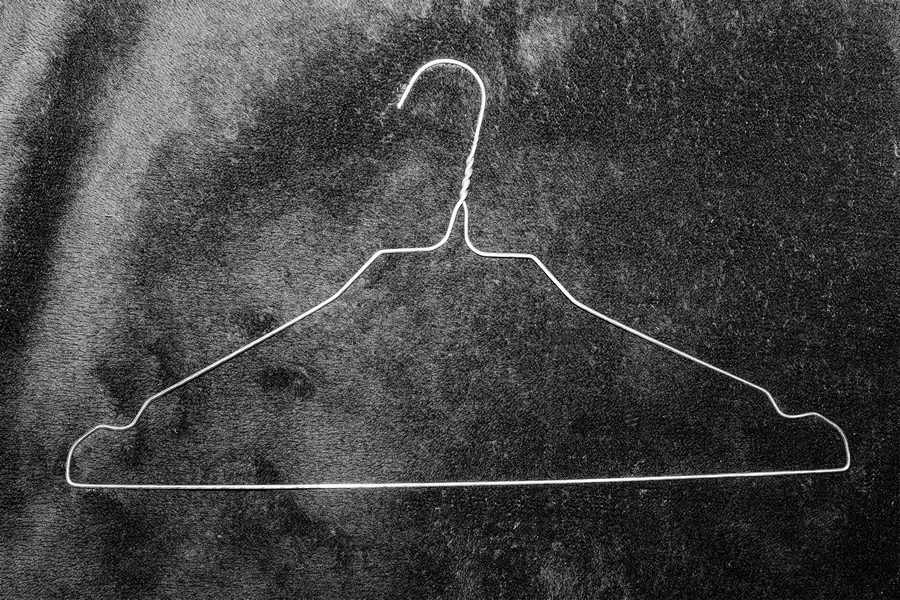
LAIA ABRIL: ON ABORTION
Under “natural” circumstances, the average woman would get pregnant about 15 times in her life, resulting in ten births. Seven of those babies would survive childhood. For centuries, people have searched for ways to delay or terminate pregnancy. Today, safe and efficient means of abortion finally exist, yet women around the world continue to use ancient, illegal or risky home methods: every year, 47,000 women around the world die due to botched abortions.
Across countries and religions, millions of women are blocked from abortion technologies by law and social coercion, and are forced to carry pregnancies to term against their will. Some are minors and rape victims. For many, the pregnancy is not viable or poses a health risk. But all can be criminalized for trying to abort. In El Salvador, even women suffering a miscarriage are being charged with homicide, facing prison sentences of up to 40 years.
In February 2015, a 19-year-old woman took abortion pills in São Bernardo do Campo, Brazil, then went to the hospital with abdominal pain. After treatment, her doctor called the police, who handcuffed her to the bed and forced her to confess. In Brazil, abortion is illegal under most circumstances and doctors are known to break their confidentiality code in order to denounce women who try it. Patients accused of tempting abortion have been detained in hospitals for weeks and even months.
In violation of patient confidentiality codes, doctors and healthcare providers have been known report women seeking illegal abortions, even when abortion is medically necessary to save the patient’s life. On the other hand, anyone who helps a woman abort in a country where abortion is illegal can find themselves incarcerated. And even in countries where abortion is legal, medical staff may risk their lives to perform the operation.
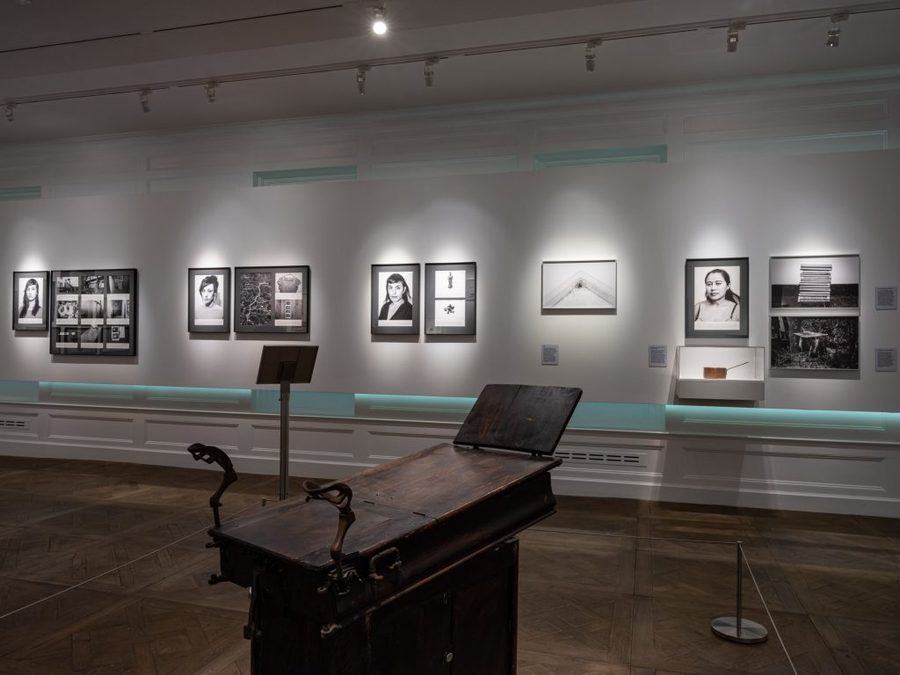
In the United States in 2017, nearly 1 in 5 pregnancies, excluding miscarriages, ended in abortion –an experience shared by almost 1 in 4 women. And yet, well over half of all women of reproductive age, nearly 40 million women, live in states considered hostile to abortion rights. In the past year, six US states passed laws banning abortions once a “fetal heartbeat” is detected—as early as 6 weeks—often before a woman discovers she is pregnant.
Although the courts have largely delayed or invalidated these laws, the assault on American women’s right to an abortion has continued. Since the early 1970s, when an all-male Supreme Court legalized abortion on the basis of women’s right to medical privacy—and when more than two-thirds of Republican respondents to one poll believed that abortion should be left to a woman and her doctor—abortion has become a highly partisan issue exploited by political candidates.
In 2016, for the first time in history, the Pope has allowed Catholic women who’ve aborted to be forgiven. But while this may seem like a step forward, it perpetuates the stigma of guilt that surrounds women’s choices. In the meantime, politicians exploit abortion as campaign currency, making reproductive issues a political matter, rather than a question of rights.
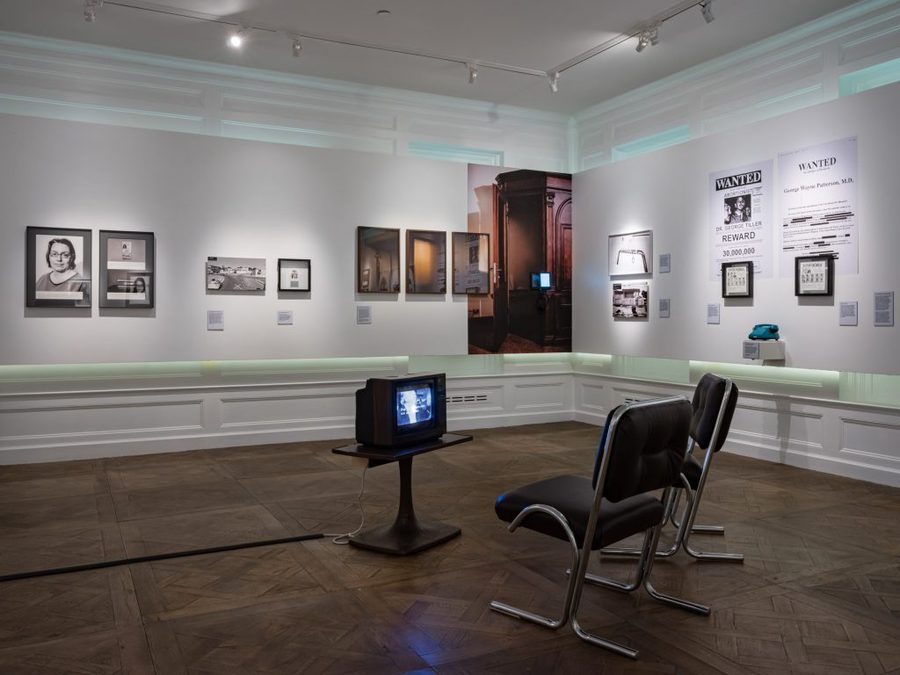

Laia Abril is a multidisciplinary artist working with photography, text, video and sound. Her long-term project A History of Misogyny is a visual research undertaken through historical and contemporary comparisons. In her first chapter On Abortion (2016), Abril documents and conceptualises the dangers and damages caused by women’s lack of legal, safe and free access to abortion. Continuing with her painstaking research methodology, Abril draws on the past to highlight the long, continuous erosion of women’s reproductive rights to present-day. Her collection of visual, audio and textual evidence weaves a net of questions about ethics and morality, and reveals a staggering series of social triggers, stigmas, and taboos around abortion that have been invisible until now.
The Museum of Sex in New York presents On Abortion: And the Repercussions of Lack of Access, Laia Abril’s first-ever solo show in the US, displaying her career-long research exploring the debate over abortion restriction worldwide. In Abril’s words, abortion has become “a political matter, rather than a question of rights.”
“Laia Abril’s careful global exploration of the past and present of contraception and abortion re-frames the issue, showing us that abortion is, first and foremost, not a political currency but a vivid lived experience for women around the world and throughout history. Abril’s work looks at the long struggle to obtain rights to family planning for women and demonstrates the complicated decisions women make when choosing to end a pregnancy, with their very health and survival on the line,” says Lissa Rivera, Curator of The Museum of Sex.
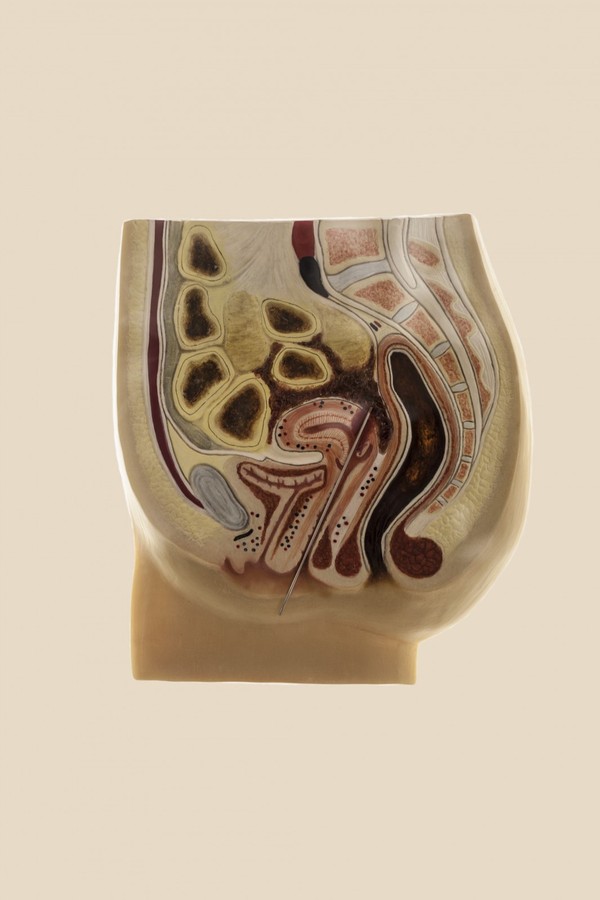
Knitting Needle Procedure
Above is a three-dimensional cross-section illustrating an attempted knitting needle abortion. In places where abortion is illegal, unwillingly pregnant women may wait until the pregnancy becomes visible (15 to 18 weeks) before acting. At that point, non-professionals may offer a life-threatening abortion procedure: inducing early labour by pushing a pointed instrument through the cervix and into the embryonic sac.
LAIA ABRIL: ON ABORTION: AND THE REPERCUSSIONS OF LACK OF ACCESS
The Museum of Sex, 233 Fifth Avenue (at 27th Street), New York, NY
February 7 – October 15, 2020
También te puede interesar
ISA CARRILLO, CIRCE IRASEMA, LUCÍA VIDALES: TERRA PRETA
"Terra Preta" presents the work of three Mexican artists to consider the sacredness of fertile soil and the relevance of ancient wisdom. Through depictions of Mesoamerican mythology and deity representation, the examination of the...
TALLER BORICUA: A POLITICAL PRINT SHOP IN NEW YORK
In celebration of Taller Boricua’s 50th anniversary, El Museo del Barrio presents "Taller Boricua: A Political Print Shop in New York", the first monograph exhibition in three decades about the East Harlem-based Nuyorican collective...
Resisting Paradise
Though geographically close, Caribbean artists are often unable to travel and show within the region. Intra-regional exchange is challenged by variations in language and colonial history, while flight routes prioritize the convenience of visitors...

